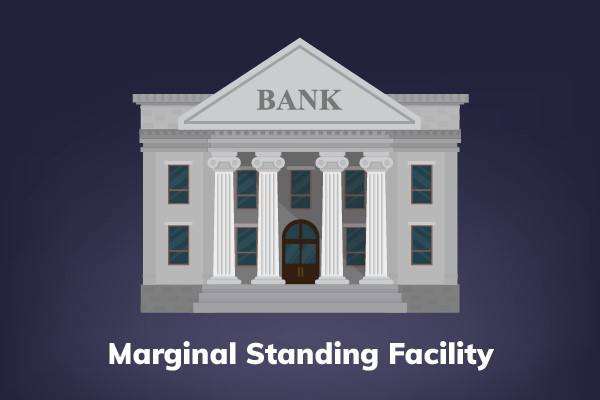Role of Blockchain in Finance : A Comprehensive Guide

In the rapidly evolving landscape of finance, blockchain technology emerges as a revolutionary force, redefining traditional paradigms and setting the stage for a future where transactions are faster, more secure, and utterly transparent. As we delve into this transformative era, it becomes crucial to understand the role of blockchain in finance, its implications, and the myriad ways it is reshaping the industry.
A Primer on Blockchain Technology
At its core, blockchain is a distributed ledger technology (DLT) that offers a decentralized, secure, and transparent way of recording transactions across multiple computers. This ensures that any recorded data is immutable and tamper-proof, providing an unprecedented level of security and trust in the digital realm. Originating from the cryptocurrency domain, blockchain’s potential spans far beyond, with finance being one of the most significant beneficiaries.
Revolutionizing Traditional Financial Systems
The traditional financial ecosystem is riddled with intermediaries, from banks to clearinghouses, which, while necessary for trust and validation, often introduce inefficiencies, delays, and additional costs. Blockchain, with its innate attributes, promises to streamline these processes by enabling peer-to-peer transactions, reducing the reliance on intermediaries, and thereby lowering transaction costs and enhancing efficiency.
Enhancing Security and Transparency
One of the most compelling advantages of blockchain in finance is the enhancement of security and transparency. With blockchain, every transaction is encrypted and linked to the previous transaction, creating an unbreakable chain. This not only makes it nearly impossible for fraudsters to alter transaction histories but also ensures that all network participants have access to the same ledger, fostering an environment of trust and transparency.
Accelerating Settlement Times
In traditional financial systems, the settlement of trades can take days, primarily due to the involvement of various intermediaries and regulatory processes. Blockchain technology can dramatically reduce these settlement times to mere seconds or minutes by enabling direct transactions between parties and automating regulatory compliance through smart contracts. This efficiency gain not only improves liquidity but also significantly reduces counterparty risks.
Facilitating Access to Financial Services
Blockchain technology holds the promise of democratizing access to financial services, especially for the unbanked and underbanked populations. By bypassing traditional banking infrastructures and reducing the need for physical presence or documentation, blockchain can offer a pathway to financial inclusion for millions worldwide, fostering economic empowerment and growth.
The Role of Blockchain in Debt Consolidation
In the realm of personal finance management, blockchain technology also finds relevance. Debt consolidation, a strategy often employed to manage debt more effectively by combining multiple debts into a single loan with a lower interest rate, can benefit from blockchain’s transparency and efficiency. By leveraging blockchain, individuals could potentially access more favorable loan terms, monitor their debt repayment progress in real-time, and achieve greater control over their financial health.
Real-life Statistics and Case Studies
The real-world application of blockchain in finance is already underway, with numerous success stories and statistical evidence highlighting its impact. For instance, J.P. Morgan’s blockchain-based network, Liink, has significantly improved the speed and security of cross-border payments. Similarly, the Australian Securities Exchange (ASX) is set to replace its existing settlement and clearing system with a blockchain-based solution, promising enhanced efficiency and reduced risks.
Overcoming Challenges and Looking Ahead
Despite its potential, the integration of blockchain in finance is not without challenges. Regulatory uncertainties, scalability issues, and the need for industry-wide standards are some of the hurdles that need to be addressed. However, with continuous technological advancements and a collaborative approach among stakeholders, the future of finance with blockchain looks promising.
Unleashing New Financial Products and Services
Blockchain’s versatility and security enable the creation of novel financial products and services that were previously unimaginable. One such innovation is tokenization—the process of converting real-world assets into digital tokens on a blockchain. This can include anything from real estate and art to shares in a company. Making these assets more accessible to investors and enabling fractional ownership. Tokenization not only democratizes investment opportunities but also increases liquidity in markets that were previously considered illiquid.
Moreover, decentralized finance (DeFi) platforms are transforming lending, borrowing. And trading by operating without traditional financial intermediaries. Through smart contracts on blockchain, DeFi platforms offer more competitive rates, open access, and a transparent, secure environment for financial transactions. This has the potential to significantly disrupt the current financial ecosystem by providing alternatives to conventional banking and financial services.
Strengthening Regulatory Compliance
Regulatory compliance is a critical aspect of the financial industry. Ensuring the integrity and stability of financial markets. Blockchain can play a pivotal role in simplifying compliance through its inherent transparency and immutability. For example, by maintaining a tamper-proof ledger of all transactions, blockchain can assist in anti-money laundering (AML) efforts and the prevention of financial fraud.
Additionally, smart contracts—self-executing contracts with the terms of the agreement directly written into code—can automate compliance with regulatory requirements. This not only reduces the administrative burden on financial institutions but also minimizes the risk of human error, making regulatory compliance more efficient and reliable.
Fostering Transparency and Accountability
Blockchain’s ability to provide a single, immutable record of transactions ensures a level of transparency that is unprecedented in the financial sector. This transparency is instrumental in building trust among stakeholders, including investors, regulators, and the public. For instance, blockchain can provide real-time visibility into the movement of assets and the execution of transactions. Enabling more effective oversight and auditing processes.
Moreover, the transparency facilitated by blockchain can significantly enhance accountability within the financial sector. By making transaction histories openly available, blockchain can deter fraudulent activities and ensure that financial institutions are held accountable for their actions. This could lead to a more ethical and responsible financial ecosystem, where trust is built on transparency and integrity.
Navigating the Path Forward
The integration of blockchain into finance is a journey that requires collaboration, innovation, and a willingness to embrace change. Financial institutions, technology providers, regulators, and consumers must work together to address the challenges, explore the opportunities, and shape the future of finance. This includes investing in blockchain infrastructure. Developing regulatory frameworks that support innovation while ensuring consumer protection. And educating the public about the benefits and risks associated with blockchain-based financial services.
As we navigate this path forward, it is clear that blockchain technology holds the potential to transform the financial sector fundamentally. From enhancing the efficiency and security of transactions to enabling greater financial inclusion and creating a more transparent and accountable financial ecosystem. The role of blockchain in finance is indeed pivotal. Embracing this technology can lead to a more resilient, inclusive, and forward-thinking financial future for all.
Conclusion
In conclusion, the impact of blockchain on the financial industry is multifaceted. Offering significant benefits while also posing challenges that need to be carefully navigated. As we stand at the brink of this technological revolution. The promise of blockchain in transforming finance is undeniable. It’s an exciting time for the financial sector. With blockchain technology at the forefront of ushering in a new era of innovation, efficiency, and transparency.






